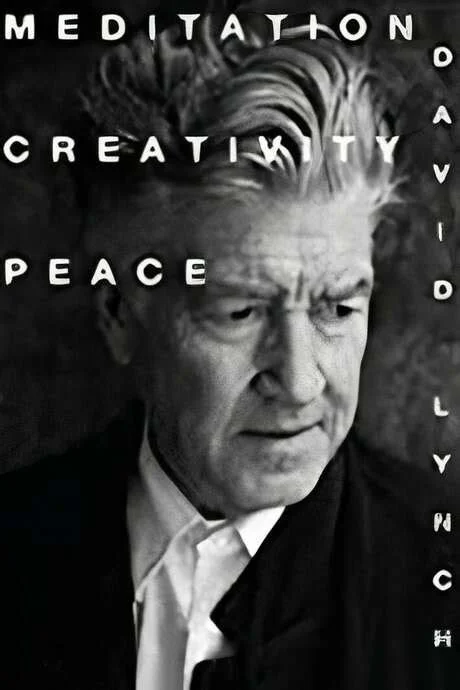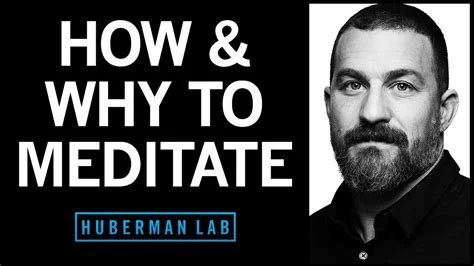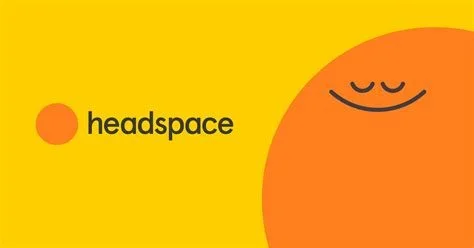Are you curious about meditation?
My curiosity in meditation started back in an after-hours office building several times a week with my mom, dad, two of my sisters, a newscaster and his son, an atheist, and rotating guys at various levels of cuteness while I attended high school in the 1970s.
The first night I learned to meditate, I fidgeted with a flimsy brochure, crinkled from a previous student’s handling. pretended not to stalk-watch the newscaster’s son, one of a handful of teenagers in a group of a dozen people mostly in their 40s. We were in a strip-mall office building in a suburb of Milwaukee, Wisconsin back in 1974 when I was a sophomore.
My sister’s science teacher recommended the class to our mom to help with dad’s stress level. Mom mingled with other meditation newbies in her ’70s Jackie-O updo wig, adjusting hver black cat-eye glasses, wearing a burnt-orange polyester pantsuit with matching purse she’d later be stopped by a police officer for illegally pulling off the side of the expressway with and not having her license. She needed to throw-up from morning sickness, pregnant with one of my younger sisters. Mom would explain why she didn’t have her license — she changed outfits and needed a purse to match. The cop would tell her to spit in a cup and keep driving. Mom would ask him if he’d ever been pregnant.
My dad, the president of a roads and bridges construction company started by his dad during the depression, wore a custom-tailored navy suit with a wild satin lining of colorful swirls Mom picked out for him. As a teenage boy, Dad admired and feared my grandfather as he pointed to the few men who would work as laborers for the day and be able to put food on their families’ tables that night. Dad stood next to Mom glancing at his daytimer schedule and checking his watch.
Dad’s the reason we were at this after-hours business park on a weekday night reserved for homework only.
“Grab a mat and find a place on the floor,” our Bill Nye the Science Guy meditation teacher gestured to everyone. “You can sit or lie down, whichever feels more comfortable.”
My sister jockeyed next to the newscaster’s son and motioned me over. My mom smiled. My dad shook his head from across the room where he would later be snoring. Behind me, somewhere, a clean-cut raven-black-haired atheist I’d date a few times with way too much Old Spice on, unrolled his mat. I could see the newscaster’s son, but couldn’t get the atheist’s Old Spice smell out of my head.
I closed my eyes and listened to my breath. I’m sure I peeked and would have looked at the ceiling tiles or shifted in my cross-legged position on the yoga mat.
Funny when I think about it, how my mother introduced me to meditation in the 1970s and quantum physics in the 1960s when she read us A Wrinkle in Time by Madeleine L'Engel. Quite progressive for the time especially in our conservative circle from the suburbs.
Over the years, my Interest in meditation morphed. I learned new techniques, tried them, got busy with life and raising kids. Was gobbled up by corporate and forgot to meditate then picked it up again after my strokes.
Then when COVID hit there was plenty of time to try new things. Or revisit old routines. Exploring what and how to take advantage of my new encouraged free-time at home. I dug back in, like many other people who had either experimented in the past or were meditating for the first time.
I wanted to reconnect to the healthy habit. Feels like flossing my teeth. I know it’s good for me, but I often don’t feel better until after I’m finished.
What is meditation? What are the benefits like stress reduction? How do you do it? And why is it so important?
what is meditation?
Meditation has been around for centuries. Here in the US over the last several decades meditation has gone from some eastern religion ritual and exploded to addressing a panacea of problems. Whether it’s insomnia, stress, high blood pressure, inability to focus, reducing pain, decision making, bad relationships, and on and on.
But what is meditation? There are many, many meditation practices. According to the CDC, the percentage of Americans who have practiced some sort of mediation tripled between 2012 and 2017. Some 200-500 million people meditate globally, and that’s from before the pandemic. And children’s participation has grown in recent years too.
One of the most popular forms and the one I’d like to spend time exploring is mindfulness meditation. It has two main parts: attention and acceptance.
“The attention piece is about tuning into your experiences to focus on what's happening in the present moment. It typically involves directing your awareness to your breath, your thoughts, the physical sensations in your body, and the feelings you are experiencing.
The acceptance piece involves observing those feelings and sensations without judgment. Instead of responding or reacting to those thoughts or feelings, you aim to note them and let them go.”
As I reflect, on my on-again/off-again meditating over the decades it’s hard not to ask at what point did I learn or begin to appreciate the concept of “thoughts” as separate from me, or rather a sub-part of me? Which brings me back to those meditation classes in the after-hours office building. We all learned the calm breathing in … and out … watching our thoughts as if they were gentle waves, although I know at times I’m distracted, but that’s the whole point. You don’t stop thoughts, you learn to observe them.
So why meditate?
According to Emma Seppälä, the science director of the Center for Compassion and Altruism Research and Education at Stanford University, who told Big Think “Meditation practices can really help you observe your mind become aware of its tendencies. For example, its tendency to wander. Meditation is an exercise in which you are engaging fully with the present moment, it’s a fantastic way to train your mind to be more present with what is going on right now.”
“Meditation practices can really help you observe your mind become aware of its tendencies.”
—Emma Seppälä
what are the benefits?
As mentioned earlier, benefit claims are many ranging from: boosting creativity, better sleep, reduced stress, healthier blood pressure, increased focus, improved decision making, etc.
When the girls were in grade school in the 1990s, I introduced them to meditation. I remember our first time. They sat cross-legged in French brained-hair and pony tails all bright-eyed watching me expectantly.
We started by visualizing our own stars. They felt a white light come from their stars and fill their bodies and hearts. They flew to their own private gardens. On the way they stopped at the Worry Tree to leave their worries behind knowing they’d still be there when they returned.
We imagined colorful little ornament-sized containers we’d squish our concerns into. Worries about school (or work for me). Worries about friends. Worries that kept us up at night. The youngest had a hard time keeping her eyes closed that long so she peek-watched her older sisters.
Sometimes we’d go into a Universal Library where they could explore and read anything they wanted. Other times they’d visit a cottage they designed with a pathway with flowers leading up to a special door they imagined into their private spaces. I remember after meditation, the girls played without bickering — all together!
The book I read, but can’t remember now, commented on how meditation enhanced creative imagination especially with children. One time, when we did science experiments — our youngest loved playing with dyed water and putting droppers full into clear water to see what colors she could make. I wonder if she remembers that when she’s mixing glazes for her pottery.
Around this time in the 1990s, I created an artists palette of salad colors in a muffin tin for dinner one night. The girls sat at our green formica peninsula and took turns choosing three different color toppings from various shades of bell peppers, bright red tomatoes, black and green olives, cheddar cheese lightning bolts, carrots (sliced, curled or chunked), celery slides, and mushrooms. They ate all their salads.
a documentary by David Lynch
This documentary is an exhilarating, inspiring round-up of questions and answers from David Lynch's European and Middle East tours of 2007-2009, when he visited 16 countries to meet film students, receive national awards, launch university projects, and describe the extraordinary benefits for creativity and peace to be gained by transcending thought with Transcendental Meditation.
Creativity was a big draw for me initially with my poetry and various art projects I explored: book arts and collage. Paper-making was especially fun with the girls.
But I’ll admit after my strokes, stress reduction became a bigger draw. Part of my stress reduction plan was learning to put work away when I went home and learning to nurture my creative side like it was a food group. That meant weaving in time for my writing between corporate product development and restructuring projects, exercise, family, and relationships.
Research verifies how chronic stress impairs the body’s immune system. We all could use a little help being reminded to dial down our body’s response to stress. I admit I could. There’s a ripple effect to always being hyper-alert and not allowing ourselves downtime. On being reminded how to re-balance ourselves out of high-energy sucking activities to find our own unique and personalized ways to decompress.
My neurologist told me after my 3 month MRI check-up she could hear my blood-rushing again through my blocked carotid artery. She prescribed exercise and starting back at work 1/2 time, then 3/4 time and to learn to “pull back when I wanted to go full bore.” Hard to do.
But I learned to track all my activity in a color-coded spreadsheet: exercise, meditation, med weaning (under my doctor’s supervision), supplements, and healthier eating. When I revisited the spreadsheet recently, my most successful BP readings were when I included meditation in the mix.
And for issues with sleep, you can follow advice from Dr. Herbert Benson, director emeritus of the Harvard-affiliated Benson-Henry Institute for Mind Body Medicine. "Mindfulness meditation is just one of a smorgasbord of techniques that evoke the relaxation response," says Dr. Benson of a JAMA Internal Medicine study.
“Mindfulness meditation is just one of a smorgasbord of techniques that evoke the relaxation response.”
— Dr. Benson
how do you do it?
There are as many types of mediation as there are types of exercise. In the simplest form there’s the adage that it doesn’t matter what exercise you do, just do something. Develop a habit for exercise. Same approach with meditation.
According to Andrew Huberman in his podcast How Meditation Works & Science-Based Effective Meditations many people think of meditation like exercise, one size fits all. But with exercise, there’s weight-lifting, running, or high-intensity. With mediation, it can be for stress, focus, sleep, performance, etc. You can use an app (my favorite was Headspace for a year or so), go to a class, do it yourself, incorporate micro-meditations, combine with yoga, and on and on.
Research also shows that meditation helps improve memory through neuroplasticity. Our memory is storied in multiple parts of our brains including our hippocampus. —possibly stimulating the birth of new neurons — called neurogenesis — further strengthening our memory capabilities.
How Meditation Works & Science-Based Effective Meditations
Huberman Lab #96
Whether you are a novice or an experienced meditator or simply interested in how our brain controls different aspects of conscious awareness and self-regulation, this episode should interest you.
Sometimes I wonder if meditation is working. My thoughts race to my todo list. And for people who don’t think they can meditate Marvin Belzer, an associate professor at UCLA Mindfulness Research Center, explains a common misconception with meditation is that it totally clears the mind. Rather the goal is to notice thoughts. Then switch gears to focus on your breath, or areas of the body, or ambient sounds. Invariably if I keep breathing, the timer goes off and I do feel slightly calmer, my todos relegated to less urgent.
why is meditation so important?
We all come to meditation for different reasons. One new reasons for me is better decision-making. A piece of research caught my eye recently in light of how polarized we are as a nation. I grew up inheriting my mom’s ability to put a positive spin on many, many things. The old making lemonade out of lemons approach to life and child-raising.
That mindset has served me well through the years. Even if my husband and kids didn’t always appreciate what they saw as my Pollyanna approach to life. I grew up in a privileged household and expected good things to happen. When they didn’t, well life happens, you learn a lesson and move on.
But, there’s a limit. You can’t sugarcoat everything. I would often cut people off as they spoke negatively either out loud or in my head — Stop watering that seed! Focus on a positive outcome! Instead of imaging the worst, what if you imagined the best that could happen? Before whatever happens, it hasn’t happened. Right?
I still stand by and do believe that taking the perspective that bad things happening can be spun into a lessons learned approach. It's better for my mental health. Not true for everyone else. Some people need to work through all the bad scenarios to prepare themselves for whatever. It reduces their stress. Not me.
Then I read this article “Meditation Diminishes Bias Toward Negative Information.” The study concluded meditation can foster better decision-making since meditators are more likely to consider information, even if it could elicit a negative response.
Whoa. What? I thought meditators were to watch thoughts go by and not engage. This study talks about letting that negative information all the way IN. Processing it, and well, not letting it trigger you. So I’m learning to listen to my friends and family who have to go through the negative scenarios that I work hard to avoid.
People who meditate every day are more likely to process negative information objectively.
Lately, I use a bolster with denim-blue and white geometric patterns, a gift from one of our daughters. I have it slipped behind a red leather arm chair in my spare bedroom writing studio. I sit cross-legged and set my iPhone timer for 20 minutes. Usually in the late morning.
Breathing in. Breathing out.
I start by noticing the sounds around me outside — radios from cars, dog walkers on their cellphones, airplanes in the distance. Then closer in the house — washing machine, husband in his studio two floors below me, the heater turning on.
My thoughts, sometimes run like a puppy when triggered by a sound. Wanting to look out the window when I hear construction vehicles. Or off on our next trip when hearing an airplane.
I listen for sounds even closer, my breathing. A head to feet body scan for sensations. All the way down to my toes, where I feel the soft carpet. Thoughts in my head — calm or agitated. Simply naming what is.
Being able to be present and not do anything. I keep coming back to the 20 minutes of sitting quietly, recognizing my thoughts as separate but connected to me.
I may not be my thoughts, but I spawn them. Sometimes I watch them like muted reruns of a favorite childhood TV show where I know the lines by heart. I try to imagine them as clouds floating by instead, especially if I have a physical reaction.
Eventually, the thought — if I let it go — I notice how my adrenaline softens.
LEAVE YOUR COMMENTS BELOW.
If you meditate, when did you first learn? How has your routine changed over time? And if you’ve never meditated, how might weaving a little meditation into your life help?
Please leave a comment below and if you enjoyed this post, I invite you to subscribe to my thought echoes newsletter.






